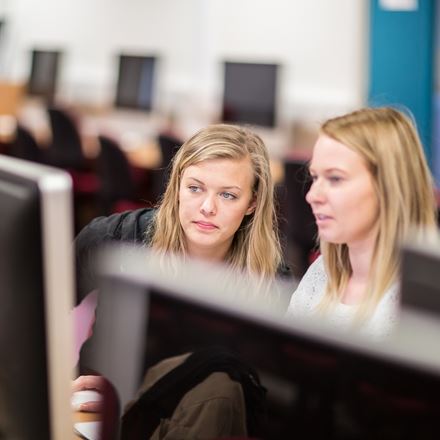Equality and inclusion
Promoting and celebrating equality in our department
Our department has a vibrant community of students and academic and professional service staff, working at all levels.
We achieved a Silver Departmental Athena Swan Award in October 2020, in recognition of the work we continued after receiving a Bronze Departmental Athena Swan Award in April 2017
Celebrating women in the department
We're proud of our outstanding female scientists. We'd like to celebrate them by showcasing a selection of our amazing women at different stages of their career.
Our department has over 45 academic members of staff (44% women) and over 15 members of professional services staff (64% women). We also have about 30 research students, over half of whom are women.
The Department of Psychology is committed to celebrating its diversity and creating an inclusive community. The EDI Committee in the Department of Psychology is dedicated to identifying how we can draw from the diverse backgrounds and experiences of our staff and students, and support changes that improve our understanding of our place in the world. At Essex, we are Rebels with a Cause, and changing the world starts with us.
We host different events throughout the academic year to hear new perspectives and support departmental activities. Recent events include workshops for staff on inclusive teaching and focus groups with students.
If you would like to make a suggestion regarding diversity and inclusion within the department you can submit your ideas through regular open lunches and by contributing to the committee. Academic staff, postgraduate students and professional services staff all make a contribution to our community.
Resources and support for staff
There are a wide range of opportunities, resources and support networks available for our staff, both within and outside our University.
Mentoring policy
The Department has a mentoring policy to support its academic staff. A senior member of staff is assigned as a mentor or probationary supervisor to all new academic staff.
For research active staff, the mentor provides advice on what is worth doing and when, where and how to network, how to develop a career plan, explaining promotion criteria and how to develop a profile within a discipline. The academic staffing officer can also advise on issues related to probation and promotion.
For new staff, an induction event is held by HR and the department.
Departmental events and meetings
Formal staff meetings are held once or twice a month. Every Tuesday (at 1pm or at 4pm in different weeks) in term time, there is a research seminar to which all academic staff and research students are invited, followed by a social event with the speaker.
Once a month (on different days), there is a Women in Psychology lunch, an Athena SWAN open lunch (where the SWAN leads invite open discussions on equality and inclusivity), and a social tea-and-cake event for all academic staff and research students.
Resources and support for students
We understand that some of our students may have different access needs or may need additional support while studying with us.
Our Student Directory includes articles about how we support our students, and how we ensure our campuses are accessible to all. If you have any questions you can also contact our Colchester Student Services Hub, who are happy to answer queries and provide signposting to our range of services.










